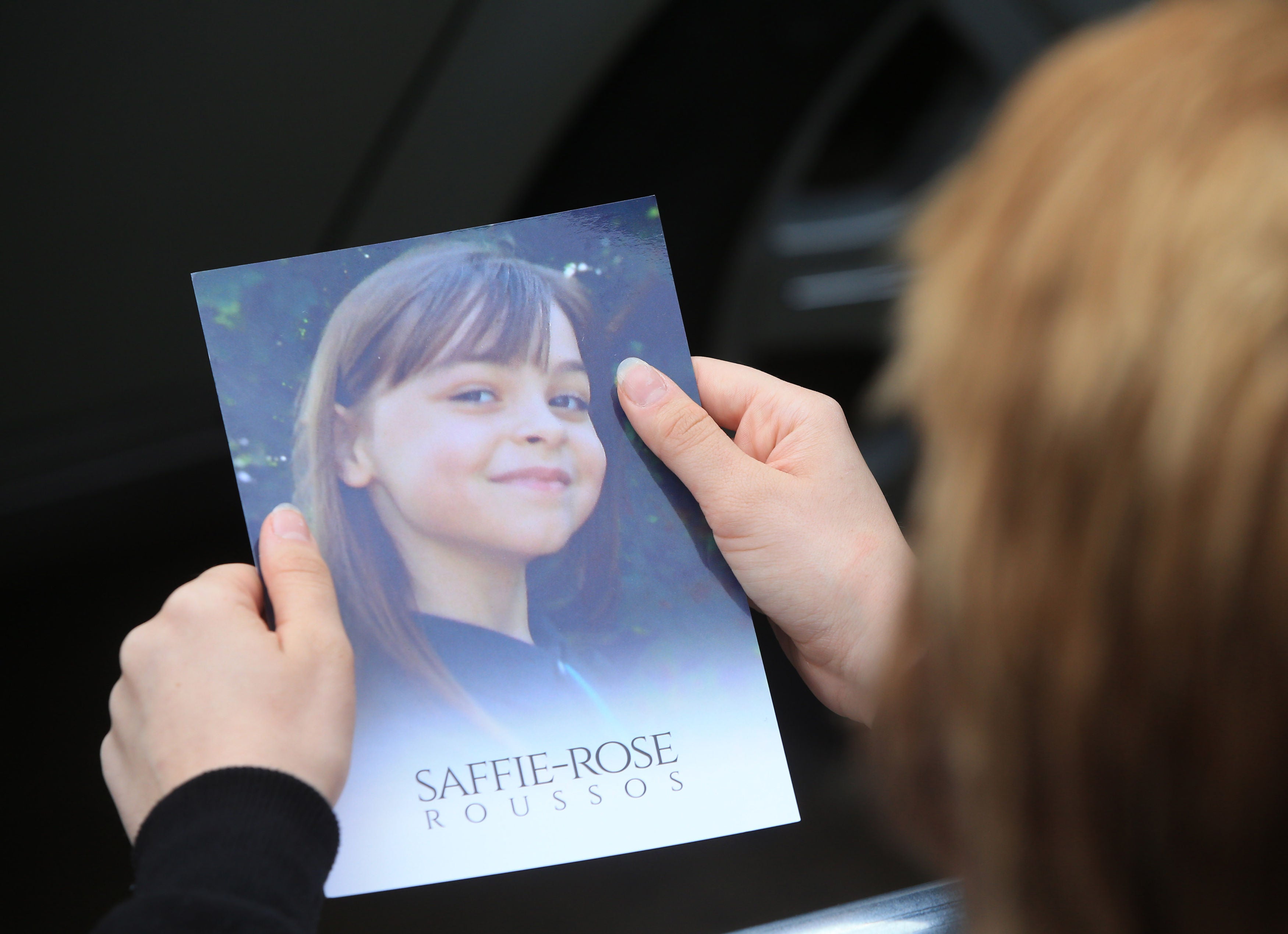Policeman knew paramedics not coming to arena ‘any time soon’, inquiry hears
Sgt Mark Haviland, of British Transport Police, has been giving evidence to the public inquiry into the Manchester Arena attack.

A police officer knew paramedics would not be coming “any time soon” after the Manchester Arena explosion, a public inquiry has heard.
Sgt Mark Haviland, of British Transport Police helped carry injured eight-year-old Saffie-Rose Roussos on a heavily bloodstained advertising board from the City Room foyer of the venue where Salman Abedi detonated his device on the evening of May 22 2017 and killed 22 people.
The then on-duty temporary detective constable parked his car near to the Trinity Way exit of the building and made his way to the City Room where senior police colleagues told him to help casualties.
Counsel to the inquiry Sophie Cartwright QC asked: “Was anything said about paramedics, or what was going to happen with paramedics?”
He replied: “No, but from my experience I knew they would not be coming and it would not be any time soon.
“I kept hearing mentions of the possibility of secondary devices at the scene and there was a mention of an active shooter that had come through to GMP (Greater Manchester Police) and I think they were telling the ambulance service about this.
“So if there is still an active threat the ambulance service won’t come anywhere near the Arena until somebody confirmed there was no threat, and at that point I don’t think anyone could so I knew they would not be coming.”
He said there was “limited information” around ambulances and he presumed if they had gone to a formal rendezvous point they would not go to the Arena until it was deemed safe.
Inquiry chairman Sir John Saunders said: “What we have heard is in a scene like that giving any guarantee of no secondary device going off is actually impossible.”
No secondary device was discovered at the scene and the report of the shooter was erroneous, the inquiry has heard.
Sgt Haviland said the above concerns were on his mind and he also thought Saffie – the youngest victim of the Arena attack – would die on the floor of the City Room if she was not moved immediately.
He helped carry her out on the makeshift stretcher along with a member of the public – T-shirt seller Paul Reid, off-duty nurse Bethany Crook and GMP officer Sgt Leon McLaughlin.
It was very difficult to determine which blood came from who
When they reached Trinity Way there were no ambulances, he said, and he thought they may be forced to take her off the board and put her in his vehicle before “fortunately” an ambulance approached and he flagged it down.
Sgt McLaughlin, then a police constable, recalled the scene in the City Room was “a complete assault on the senses … with the noise, the smell and the sights”.
He said Saffie-Rose was “clearly gravely injured” and the makeshift stretcher that was deployed was “heavily bloodstained”.
He said: “There was dead and dying people all around her. It was very difficult to determine which blood came from who.”
Sgt McLaughlin said he had been in the City Room for about 15 to 20 minutes and he could not see any ambulance staff.
He said: “I felt that if we just waited then she would have died. The overriding factor was to get her out. It was running through your mind that there was a secondary device or at any moment someone is going to appear with a firearm and start shooting.”
He had stated his “deep frustration” at the lack of paramedics in the City Room but said this was based on his “lack of understanding” at the time of how the ambulance service worked, which he had learned since from following the inquiry.
Ms Crook told the inquiry that Trinity Way was “like a ghost town” when they placed the board carrying Saffie-Rose on the pavement
She said: “I thought we were taking her to a better situation. I thought I was taking her to everyone, I thought she would have every emergency service to get where she needed.”
Ms Crook said Saffie-Rose’s condition was declining en route to Trinity Way through the link tunnel to the Arena as she kept checking her pulse and breathing.
She tearfully recalled: “I was watching her slip away and I couldn’t do anything.”
The ambulance transporting Saffie-Rose arrived at Royal Manchester Children’s Hospital at 11.23pm – 52 minutes after the bombing – but Saffie-Rose who received shrapnel wounds to her legs and body was pronounced dead at 11.40pm.
Only three paramedics entered the City Room on the night, and only one before she was evacuated who briefly leant over her before moving on to assess casualties.